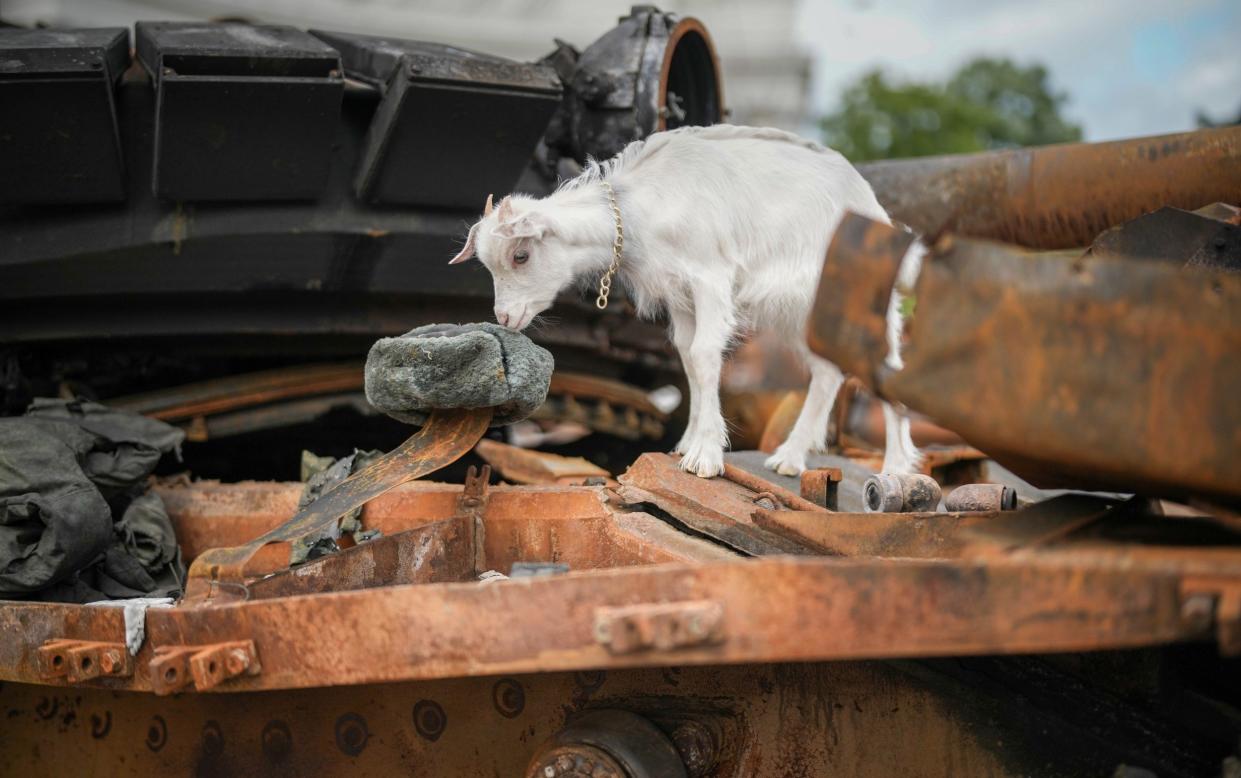'Goat of Kyiv' triggers Russian boobytrap and injures 40 soldiers

At least 40 Russian soldiers have been injured after a Ukrainian goat set off a boobytrap they were laying around a hospital in Zaporizhzhia with its “chaotic movements”.
The troops were setting up a tripwire when an escaped goat from a farm in the village of Kinski Rozdory triggered it.
They had pinned grenades around the edge of a local hospital and placed the trap as a “circular defence”, Ukraine's Chief Intelligence Directorate said.
But shortly after the trap was laid, the goat wandered towards the area, creating a chain reaction that injured dozens of troops.
“As a result of the goat’s ‘chaotic’ movements, the animal ‘disposed of’ several grenades,” the Defense Intelligence wrote.
“As a result of a chain reaction, several (Russians) sustained injuries of varying degrees of severity.”
At least 40 Russian soldiers are thought to have been injured.
As of yet, the fate of the goat is unknown.
He is being called the “Goat of Kyiv” on social media - a reference to the legend of a mythical heroic pilot, known as the Ghost of Kyiv, credited with shooting down numerous Russian planes during the Kremlin’s invasion of the capital.
Since seizing Kherson and Mariupol, the Kremlin has ramped up its attacks in Zaporizhzhia.
At least 60 per cent of Zaporizhzhia Oblast has fallen to Russian forces, who have been relentlessly attacking the area since they invaded on Feb 24. Full control of the region would allow its military to advance on other central areas.
It is not the first time an animal has made headlines for helping the Ukrainian resistance.
Patron, a Jack Russel terrier, was recognised last month for seeking out over 200 explosive devices since the start of the invasion.
Two-year-old Patron - or Bullet in English - is working in the Chernihiv region, north of Kyiv, to remove the threat of unexploded ordnance.
He has been working since he was six months old, clearing the way for Ukrainians to return home safely without the risk of further injury or death.
It is thought that hundreds of explosives have been left behind by retreating Russian forces.
Breeds of dogs like Jack Russells have a strong sense of smell, making them more effective than many human demining efforts.

 Yahoo News
Yahoo News 
